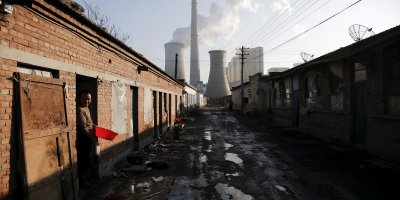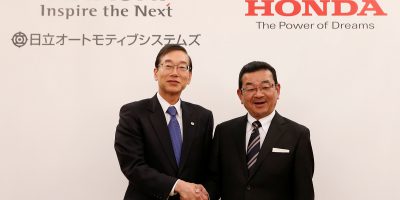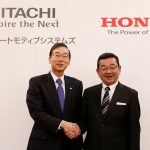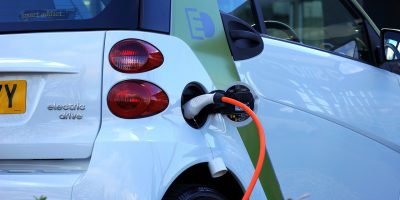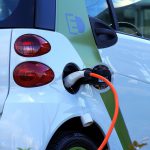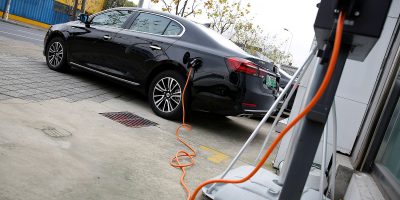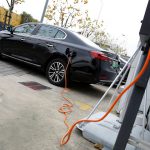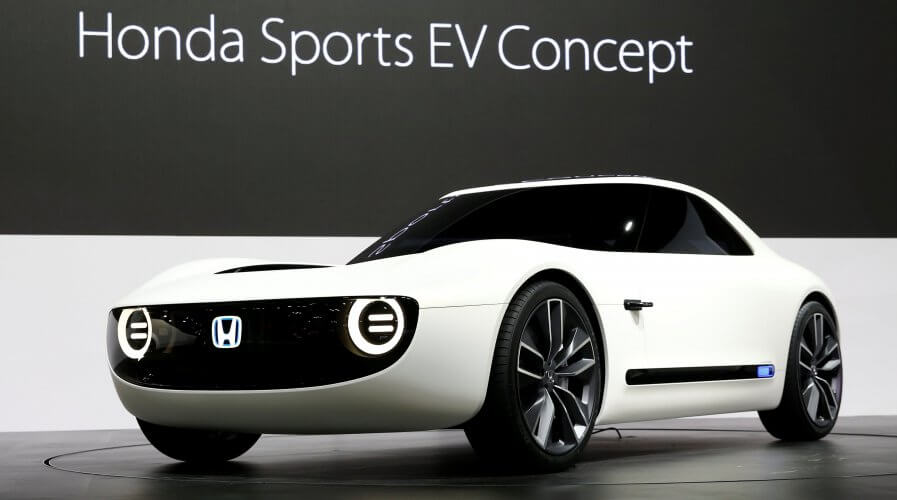
Honda Motor displays Honda Sports EV Concept during media preview of the 45th Tokyo Motor Show in Tokyo, Japan. Source: REUTERS/Toru Hanai
Japan caves in to electric cars, but aren’t giving up on hydrogen
THE TOKYO MOTOR SHOW this year was showcased the latest offerings from Japanese automakers, with a slight twist: electric cars took center stage across a range of models, despite an industry-wide insistence that hydrogen cars could also play a part in bringing mobility for the future.
According to reporting from Reuters, despite years of investing in hydrogen fuel cells, and electric-gasoline hybrids, Japanese automakers have begun pushing out all-battery electric cars (EVs) as they work to catch up with global rivals and defend against increasingly strict regulations on gasoline engines.
“As far as green cars go, vehicle powertrain electrification is a must,” said Soichiro Okudaira, president of Daihatsu Motor Co, a fully owned subsidiary of Toyota Motor Corp, according to Reuters.
“EV (technology) is a great match with small cars people use everyday to commute, go shopping, because it’s easy to charge and maintain.”
Daihatsu was one of many who showcased their concepts for electric vehicles; in their case, this was the “Pro Cargo”, a multi-use electric van. Their parent company, Toyota – which set up their own EV development team last year – said that pure EVs would be one of the “key solutions” for the global dream of seeing cleaner vehicles in the near future.
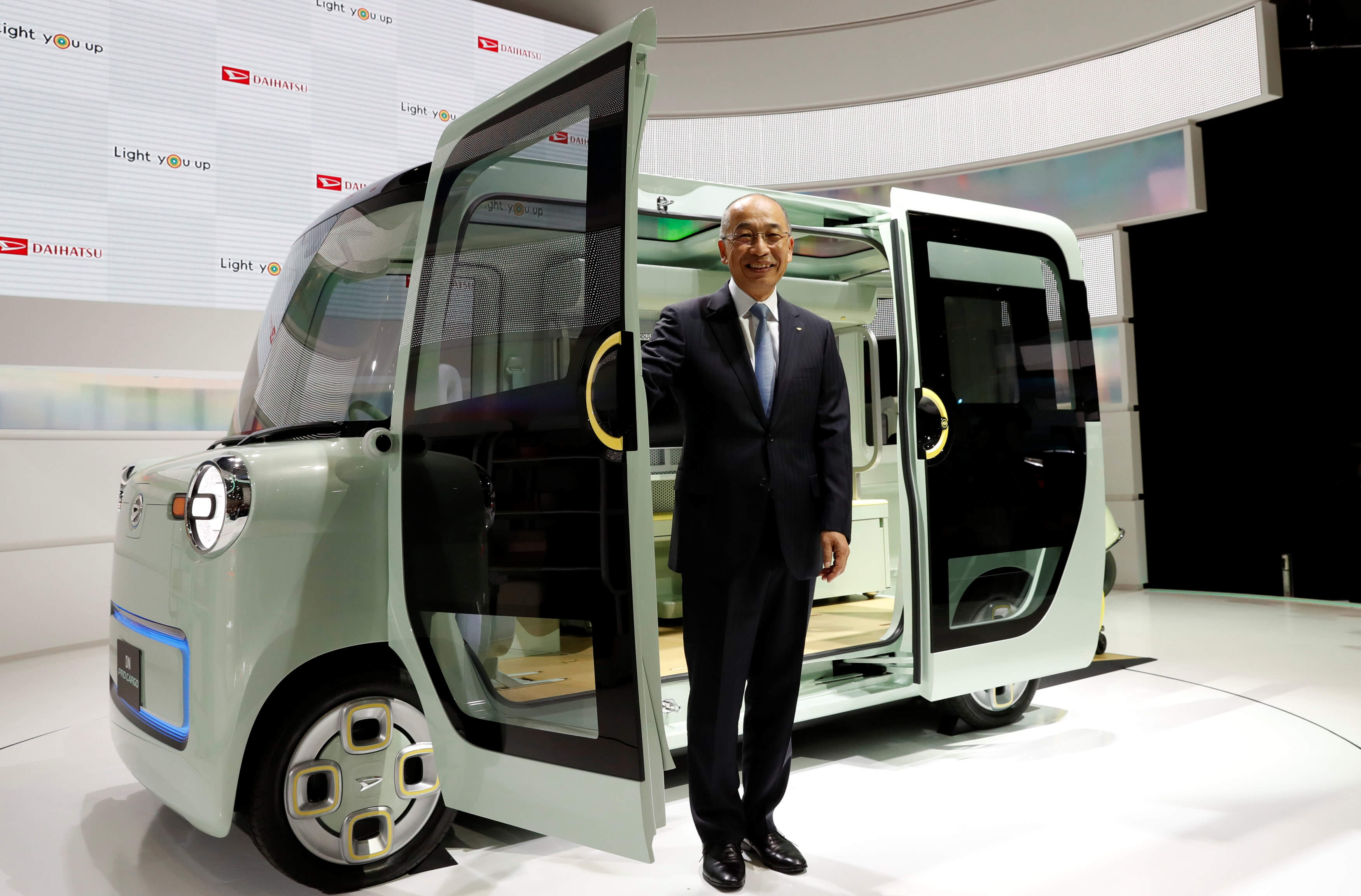
Okudaira poses next to the company’s DN Pro Cargo during media preview of the 45th Tokyo Motor Show in Tokyo, Japan, on Octo 25, 2017. Source: Reuters/Kim Kyung-Hoon
Another Japanese behemoth, Honda Motor Co. said that it would have a compact EV for sale in 2020, the latest following the 2010 Leaf by Nissan Motor Co. Leaf is by far the world’s best-selling battery electric car.
There are expectations among automakers and suppliers that EV sales could get a significant boost in the next ten years thanks to huge leaps and advances in terms of lithium-ion battery technology. Those improvements could reduce charging times, and ultimately make EVs cheaper to make and drive up demand.
“We see this tipping point happening around 2025. By then for the customer to buy petrol or EV it will be practically same cost,” Nissan executive vice-president Daniele Schillaci said according to Reuters.
“And then … if you have the same price for EVs and petrol why would you buy traditional technology?”
Toyota defends hydrogen
There are still hopes for hydrogen fuel cells to take off as an alternative to electric batteries, however, a hope that is mostly being driven by Japan’s largest automaker, Toyota. Tesla founder Elon Musk, once derided hydrogen power technology as “incredibly dumb”, but Toyota has continued to invest in the technology, and is renewing its efforts.
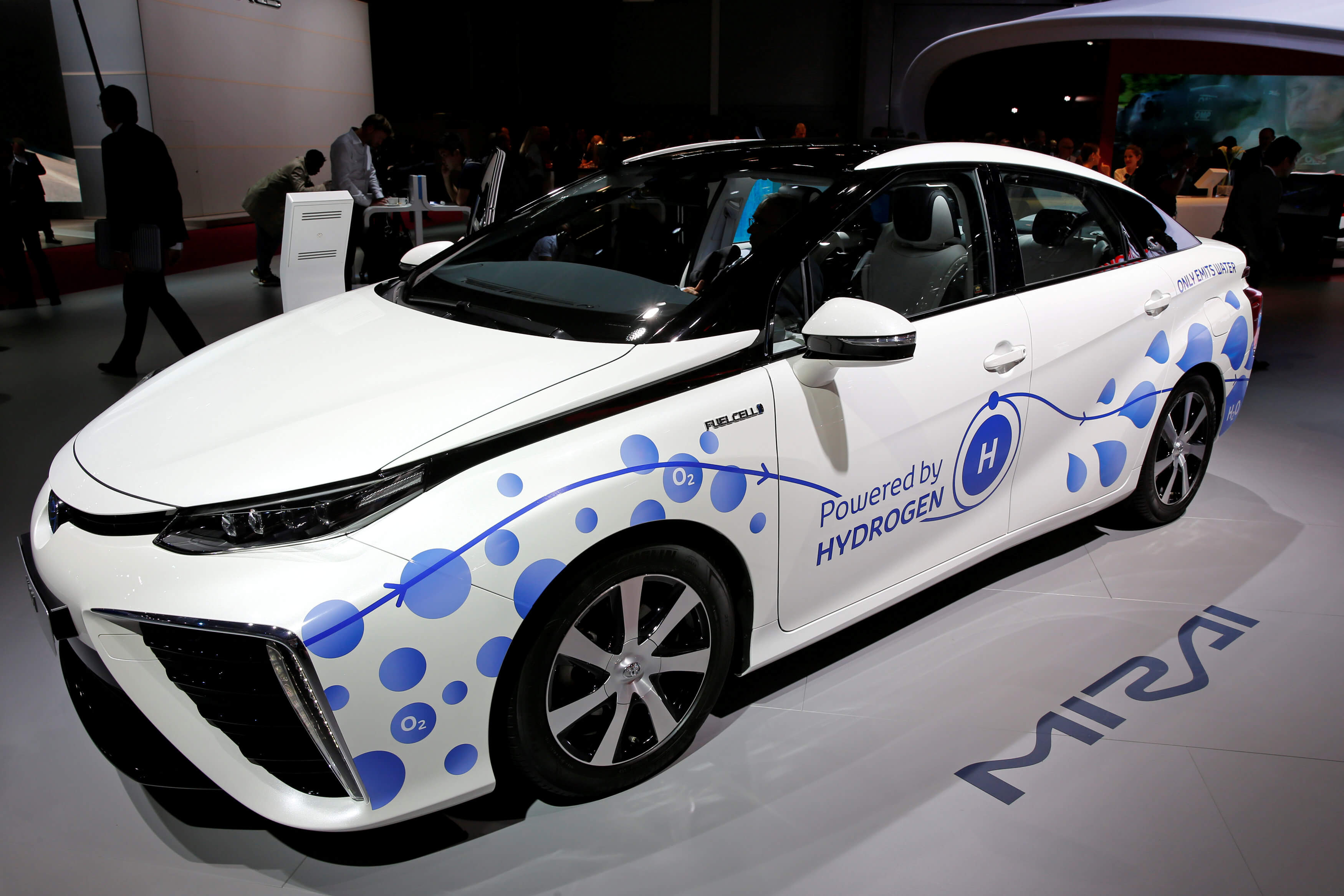
The Toyota Mirai, an hydrogen fuel cell vehicle, is displayed on media day at the Paris auto show, in Paris, France. Source: Reuters
The company’s Mirai, launched in 2014 with a JPY7.24 million (US$70,000) fuel cell, still remains its central thesis to the idea that hydrogen-powered cars can have a future alongside electric cars. The car debuted overseas, but lost much of its gloss to the arrival of electric vehicles, the majority of which were produced in China and Europe.
Just 4,300 Mirais have been sold, compared to around four million units of the Prius, Toyota’s blockbuster hybrid that ushered in the age of the EV.
At the car show, Toyota introduced two new fuel cell vehicles (FCVs): a six-seater “Fine-Comfort Ride” and a fuel cell bus, the “Sora”, which has a planned launch for next year.
The automaker said that having both electric and hydrogen cars, offerings from both itself and Tesla, will be integral to changing consumer car culture.
“We don’t really see an adversary ‘zero-sum’ relationship between the EV (electric vehicle) and the hydrogen car,” Toyota chairman Takeshi Uchiyamada told Reuters ahead of the Tokyo auto show.
“We’re not about to give up on hydrogen electric fuel-cell technology at all.”
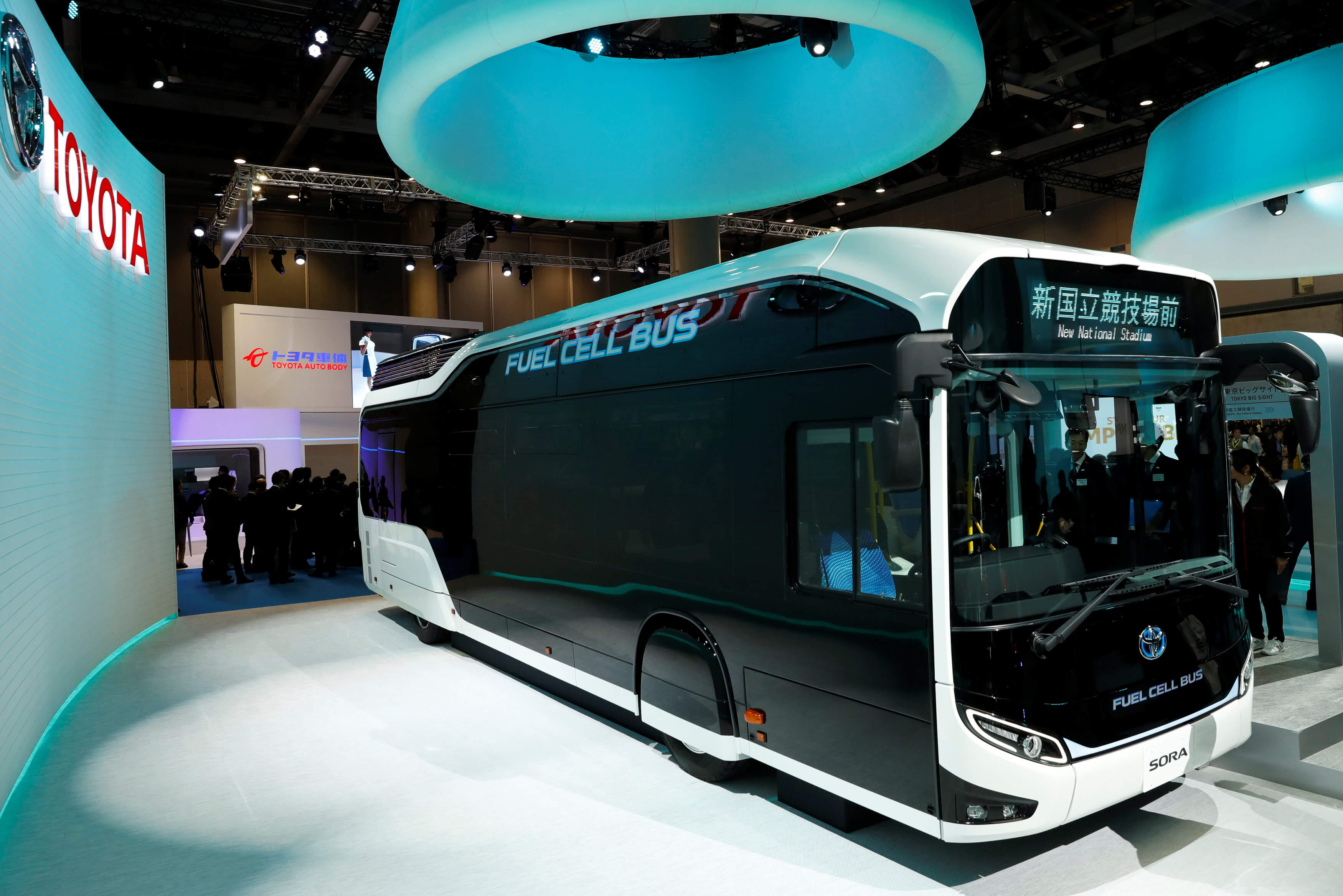
Toyota Motor Corp. displays the company’s fuel cell bus Sora during media preview of the 45th Tokyo Motor Show in Tokyo, Japan. Source: Reuters
Uchiyamada, who is known as the “father of the Prius”, says Toyota isn’t anti-EV and is investing heavily in technologies such all solid-state lithium-ion batteries to make them more desirable.
However, there are a handful of reasons why FCVs, if they ever really manage to make a dent in the glamor of EVs, could become a serious competitor for consumer dollars. For one thing, hydrogen fuel cells refuel much faster than the hours it takes for an EV to load up – EVs can take up to 18 hours to charge in some cases, and their ability to boost their travel time is largely limited by how many batteries can be packed into a single vehicle.
FCVs also have a better track record of travelling long distances, though Yoshikazu Tanaka, the chief engineer in charge of Toyota’s Mirai, said that the car is still in the concept stage. He told Reuters that he wants to raise “the practical driving range” of the model to about 500 kilometers (310 miles) from its current 350-400km. For reference, a Tesla Model 3 can go over 300km on a single charge.
Tanaka explained that making the fuel cell more efficient and pushing more propulsion power out per litre of hydrogen is the current issue that Toyota is grappling with.
Unlike electric cars, hydrogen fuel cells work more like regular gasoline cars. They rely on refueling infrastructure that is still largely absent in most countries. Toyota is working with Nissan Motor Co. and Honda, as well as energy companies JXTG Nippon Oil & Energy in order to improve Japan’s network of refueling stations.
Today, there are 91 scattered across the country, but Toyota is working to extend driving ranges in order to make up for the lack of stations.
On the flip side, hydrogen cars will likely last a bit longer than electric cars, as they don’t take as long to fuel up, and also don’t encourage rapid charging practices. Rapid charging of EVs could eventually lead to the degradation of car batteries if done too often.
Betting big on China
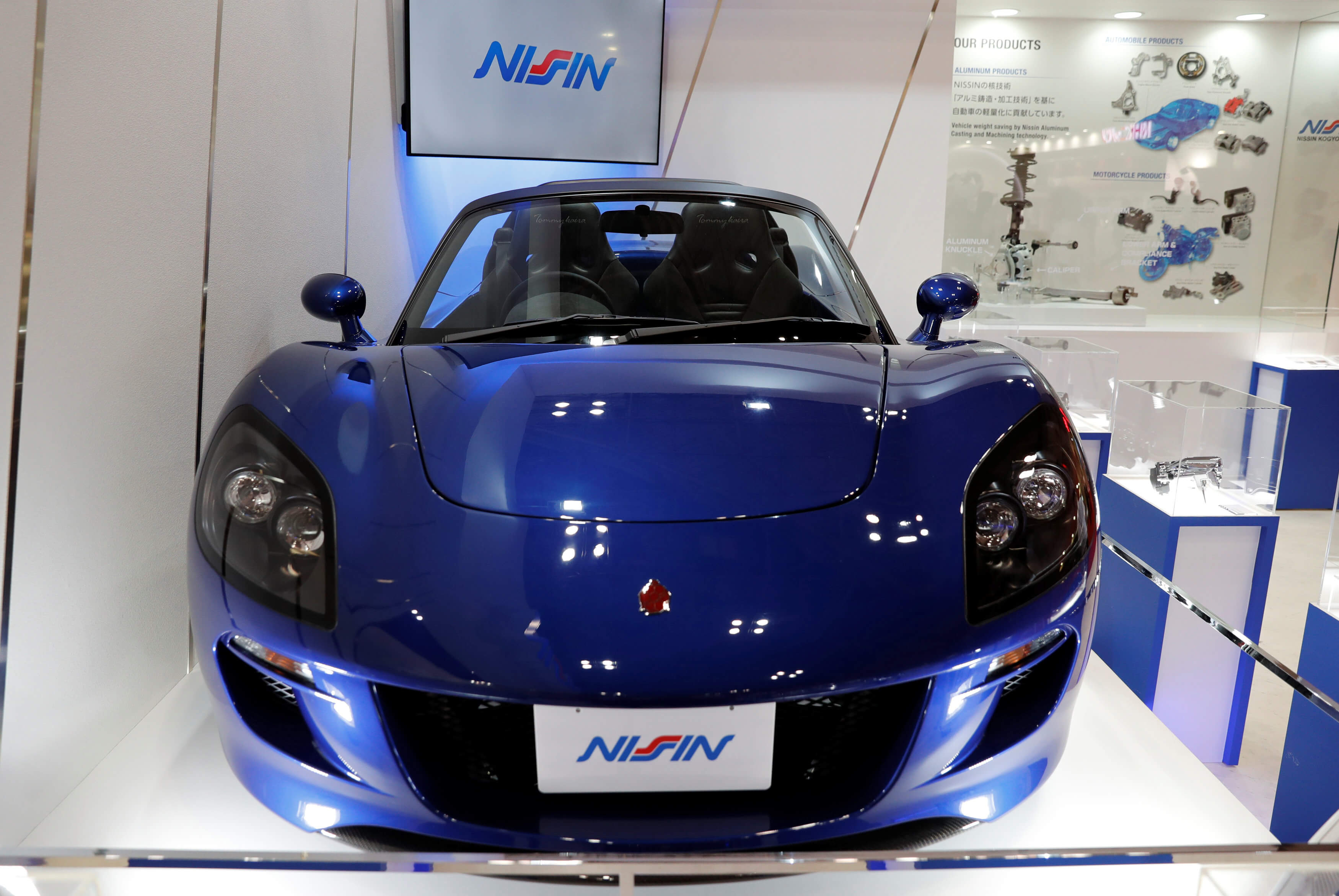
Green Lord Motors’ sports EV Tommykaira ZZ is displayed at Japan’s auto parts maker Nisshin Kogyo Co. booth during media preview of the 45th Tokyo Motor Show in Tokyo, Japan. Source: Reuters
A key strategy to Toyota’s clean energy initiatives will be the policy shift taking place in China, the world’ biggest car market. The country last month announced plans to totally eliminate the production or sale of “traditional energy vehicles”, and has been fueling much of the energy around the EV space.
The embrace of the technology has resulted in close relations between automakers and policymakers in China, if comments by Toyota green tech engineer, Katsuhiko Hirose, to Reuters are anything to go by. The promise of the market is helping to keep a declining industry afloat, and will be key to deciding if the Mirai can really make it in the real world.
Last month, Shanghai announced plans to promote development of fuel-cell vehicles by adding hydrogen refueling stations, subsidizing companies developing fuel-cell technologies and setting up R&D facilities. The city’s goal is to put 20,000 hydrogen fuel-cell passenger vehicles and 10,000 commercial vehicles on the road by 2025.
Outside of China, Toyota has partnered up Air Liquide SA, a supplier of industrial gases and services, to set up the Hydrogen Council to lobby governments to consider hydrogen-powered vehicles on the sidelines of the World Economic Forum in Davos. Along with 27 other automakers, the Hydrogen Council makes the argument that large-scale hydrogen adoption could prevent reliance on unstable electricity supplies.
READ MORE
- Ethical AI: The renewed importance of safeguarding data and customer privacy in Generative AI applications
- How Japan balances AI-driven opportunities with cybersecurity needs
- Deploying SASE: Benchmarking your approach
- Insurance everywhere all at once: the digital transformation of the APAC insurance industry
- Google parent Alphabet eyes HubSpot: A potential acquisition shaping the future of CRM

